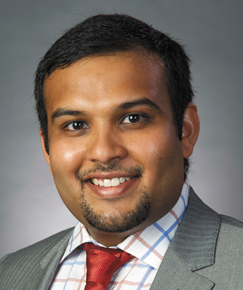How to ensure cashflow, expenses, and assets are being evaluated correctly
are two major approaches to analyzing a lending transaction that carry contrasting levels of risk. Banks and other recourse lenders evaluate the borrower’s global cash flow. They analyze the individual’s tax returns and all of his or her income sources. Conversely, alternative and nonconventional lenders who provide nonrecourse financing, focus on the property that is serving as collateral for the loan. These lenders are primarily concerned about the viability of the asset and merely screen the sponsor to ensure there are no bad actors. This is an important distinction because it directly affects the borrower’s risk. Because nonrecourse lenders are lending money to a bankruptcy-remote entity, a borrower’s other assets are safeguarded in the event that the subject property fails to perform. With a conventional bank loan, a borrower is fully exposed to unlimited credit risk because a conventional/recourse lender can go after all of the sponsor’s assets in an event of distress.
Underwriting a NonRecourse Loan
Because nonrecourse lenders are dependent on only the viability of the property, the underwriting process is extremely thorough. The asset’s recurring, repeatable, and reliable cash flows are scrutinized and expenses that are considered nonrecurring, extraordinary, and unrelated to the asset’s operation are removed. For a hotel, this may include personal expenses such as insurance for the owner, a vehicle expense, or any one-time cost such as employee training or grand opening expenses that are outside of normal operations. Likewise, capital expenditures for roof and window replacement or new carpet installation can typically be reversed from normal underwritten cash flow.
These adjustments become the bedrock of accurately underwriting a “going concern” hotel property and can cause borrowers to leave money on the table if not executed properly. An experienced intermediary can help by preparing a reconciliation between the property’s tax return and an underwriting cash flow model and providing proper justification for each adjustment to convince the lender of the asset’s viability. This critical preparation ensures the asset achieves the highest possible valuation from the appraiser and the lender calculates the highest possible available cash flow to service the loan going forward.
Accrual vs. Cash flow Calculations
Nonrecourse lenders rely on underwriting models that compare accrual vs. cash-basis accounting for an asset. Hotel owners, however, frequently run cash-basis accounting. While the timing differential between these two accounting strategies can minimize a hotel owner’s tax liability, failing to address and adjust for this discrepancy during the loan transaction process can penalize the underwriting of the loan. As one of the larger line items in a hotel operation, payroll is a prime example of where this can occur. Most lenders are concerned about trailing 12 months of cash flow. Most hotel owners have one or two periods of extra payroll in a 12-month period. This is legally allowable by the IRS under accrual accounting adjustment. However, most lenders can give credit for this accrual adjustment entry.
Franchise fees and insurance payments are other example adjustments. A knowledgeable and experienced intermediary can identify these expense adjustments upfront to maximize the cash flow available for underwriting the loan with benefits to the borrower. Maximized cash flow translates into higher asset valuation and higher loan proceeds at the lowest interest rate possible.
 Rushi Shah is principal and CEO of the commercial mortgage and real estate investment banking firm and AAHOA Club Blue Member Mag Mile Capital. As a leader in hospitality financing, Shah specializes in structuring and placing high-leverage, non-recourse bridge and permanent debt with cash out for full – and limited-service hotels nationwide. Since joining the firm’s predecessor, Aries Capital, in 2015, Shah has structured and closed hundreds of millions in financing for all property types. Shah has held previous positions at Northern Trust and has an MBA from the University of Chicago’s Booth School of Business.
Rushi Shah is principal and CEO of the commercial mortgage and real estate investment banking firm and AAHOA Club Blue Member Mag Mile Capital. As a leader in hospitality financing, Shah specializes in structuring and placing high-leverage, non-recourse bridge and permanent debt with cash out for full – and limited-service hotels nationwide. Since joining the firm’s predecessor, Aries Capital, in 2015, Shah has structured and closed hundreds of millions in financing for all property types. Shah has held previous positions at Northern Trust and has an MBA from the University of Chicago’s Booth School of Business.




